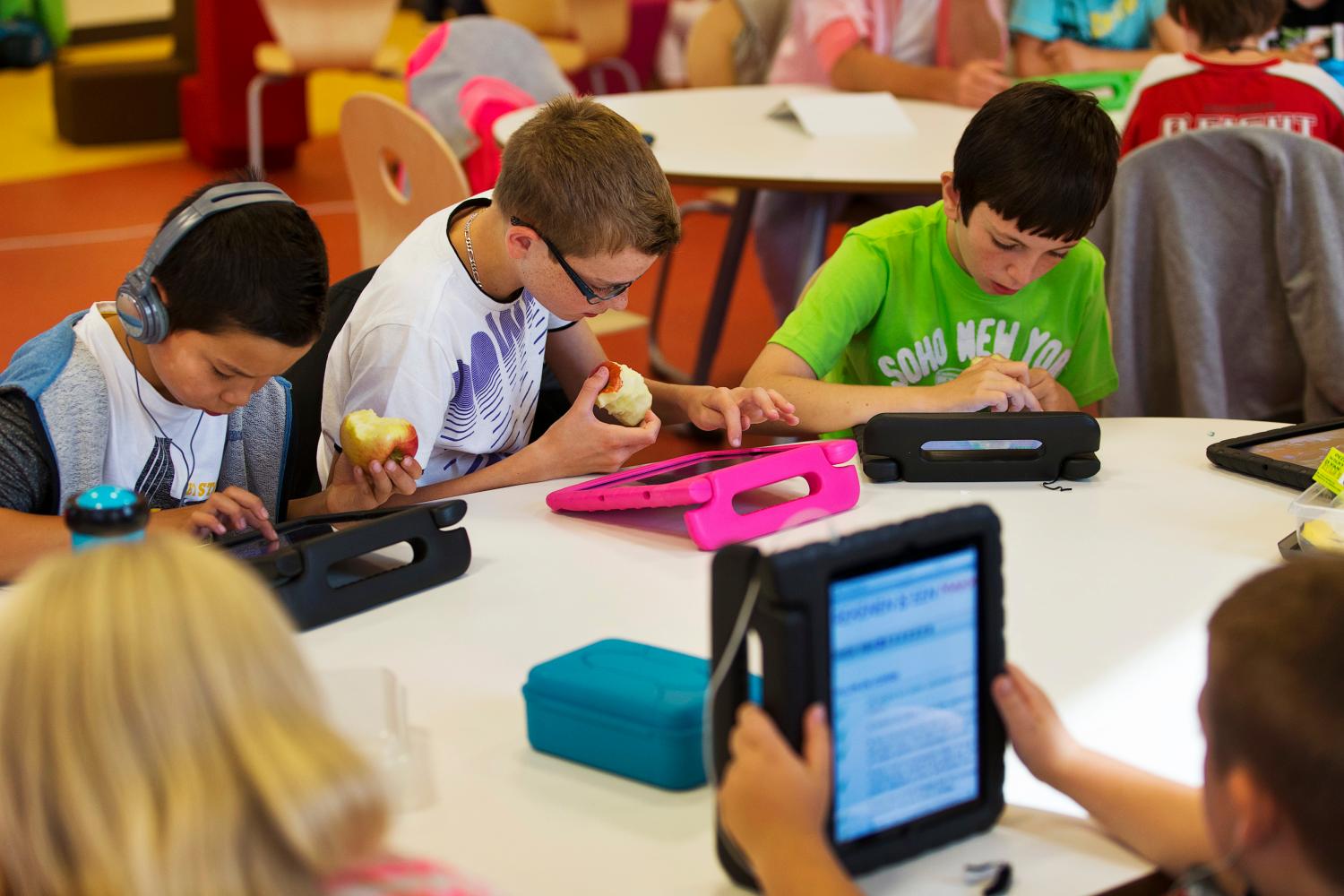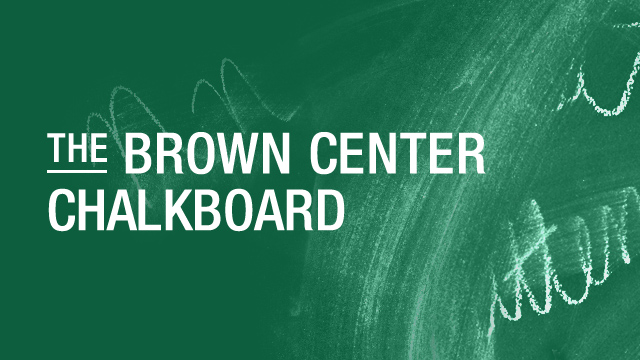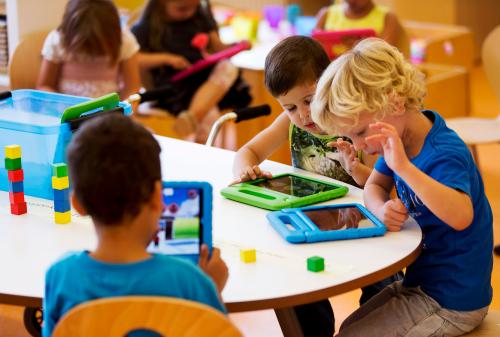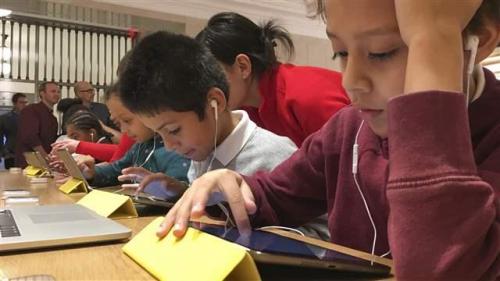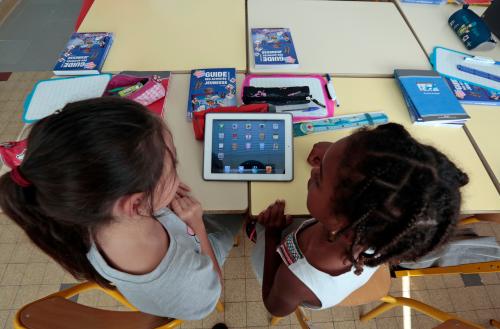In today’s technology-driven world, teachers may no longer be the sole keepers of knowledge in the classroom. The introduction of one-to-one initiatives, online classrooms, blended-learning models, and the overall rise of technology in classrooms allow for students to have far more access to constant information than past generations. Personalized learning thrives in this technology-rich environment, but is insufficient on its own to revolutionize a student’s classroom experience.
Teachers, on the other hand, are more important than ever in preparing students for an ever-changing world with infinite access to all types of information. Teachers can be the guides that shape educational experiences for their students, helping them engage with learning tools that will enrich and support deeper learning, including different types of technology. Teachers also can use technology platforms to support data-driven learning like never before, personalizing learning to students’ interests, passions, strengths, and needs.
At KnowledgeWorks, we believe that the way to best prepare today’s students for the future is by personalizing learning to fit their needs, interests and passions. KnowledgeWorks is a national nonprofit organization committed to providing all students with meaningful personalized learning experiences by delivering innovative education approaches and helping align local, state, and federal policies.
In pursuit of a transformed system that reflects this vision, KnowledgeWorks has conducted multiple studies investigating how to successfully implement personalized learning. Through in-depth interviews with district, state, and classroom leaders, we have identified overall trends and conditions necessary to create a system of learning that benefits students through personalization. We have learned that robust personalized learning systems share the following features.
- Instruction is aligned to rigorous college- and career-ready standards as well as the social and emotional skills students need to be successful in college and career.
- Instruction is customized, allowing each student to design learning experiences aligned to his or her interests.
- The pace of instruction is varied based on individual student needs, allowing students to accelerate or take additional time based on their level of mastery.
- Educators use data from formative assessments and student feedback in real time to differentiate instruction and provide robust supports and interventions so that every student remains on track to graduation.
- Students and parents have access to clear, transferable learning objectives and assessment results so they understand what is expected for mastery and advancement.
While KnowledgeWorks’ definition of personalized learning is learner-centric, we recognize that creative, empowered teachers bring personalized learning systems to life. Consistent with a recent recommendation by the RAND Corporation that districts “provide teachers with time and resources to collaborate on developing curriculum,” we believe that it is not technology itself, but how technology is cultivated by teachers in a learning environment, that leads to success. Thoughtfully utilizing technology helps educators align their work to the system outlined above. We have found that technology can deepen the education experience for learners and teachers in a personalized setting. Specifically, this occurs when district, school, and classroom leaders prioritize and invest in using technology as a tool to deepen learning and engagement between students and teachers in a dynamic classroom setting, rather than simply developing the capabilities of students to use the technology itself.
During interviews with teachers as part of qualitative work conducted by KnowledgeWorks and the National Commission on Teaching and America’s Future (now merged with Learning Forward), teachers noted that personalization would be difficult without technology, confirming our past research that showed thoughtful technology policy is one of 10 necessary conditions for developing a personalized learning system. These policies, when implemented well, can extend the benefits of a great teacher by allowing for easier implementation of new approaches to teaching and learning, including tracking student progress and meeting students where they are with instructional supports. For these schools and districts, technology did not replace teaching, but rather enhanced it by encouraging its creative use for project-based learning, interdisciplinary learning, formative assessments, and reviewing student data, among others. Critical to the application of these policies was trust and support from administration in the form of professional development.
Some teachers we interviewed pursued a shift to personalized learning because their schools had already implemented a “one-to-one” technology policy. One-to-one refers to policies or initiatives in schools that issue a digital device, usually a tablet or computer, to every student to access the internet, digital textbooks, and other digital course material. These one-to-one policies can stand alone, bringing the technology into the classroom without also revising teaching and learning methods. However, teachers also noted that those standalone policies do not automatically lead to personalized learning, and should be paired with robust personalized learning methods to transform students’ experiences in the classroom. For instance, teachers in Howard-Suamico School District in Wisconsin highlighted that while technology is important, the devices are tools that work best when supporting a strong, innovative curriculum and aligned instruction. Students today are already familiar with the tools themselves. Computers, tablets, and smart phones are ubiquitous. Learning can truly thrive when educators are given the agency to help students use these tools in new, creative, customized ways to support their educational experience.
In addition to using technology in the everyday learning of students, technology is also a vital tool for teachers to be able to use to collect formative data on student progress. Realistically, limitations in infrastructure often act as a barrier for many schools and districts that wish to implement this type of technology use in a personalized learning system. For instance, as we talked with teachers in Marysville, Ohio, they noted substantial challenges with technology because their learning platform doesn’t currently complement personalized learning. Boston Day and Evening Academy, an alternative public charter school, faced a similar challenge and navigated it by creating its own software that helps track student knowledge and skills. This innovation exemplifies how teachers were able to be creative in the development process to get the exact data that they needed to appropriately track continued progress of each of their students. This type of barrier can lead to systemic equity issues if left unattended, so it is vital that teachers’ voices are elevated, as in the Boston Day and Evening Academy example.
Our research has demonstrated that technology is important. Yet, the true power of technology lies in the development of, and agency for, teachers to cultivate the tools to meet the ever-changing needs of their students. Simply providing access to new types of technology is not synonymous to cultivating transformational change to the traditional, industrial model of teaching and learning that values standardizing inputs and outputs for students. Instead, thoughtfully cultivating the use of technology in the classroom by empowering teachers to utilize the tool in ways that support their learners is critical in the transition to a personalized learning environment.
The Brookings Institution is committed to quality, independence, and impact.
We are supported by a diverse array of funders. In line with our values and policies, each Brookings publication represents the sole views of its author(s).
